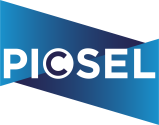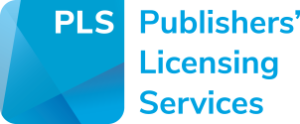The basics of Copyright & intellectual property
Copyright is one of the main types of Intellectual property. IP gives a person ownership over the things they create. Copyright provides a level of protection and compensation for the creator’s investment of time, effort, and creativity in their published material.
- Intellectual property gives a person ownership over the things they create, the same way as something physical can be owned.
- The main legislation dealing with copyright in the United Kingdom is the Copyright, Designs and Patents Act, 1988.
- Copyright arises automatically when a work that qualifies for protection is created. The work must be original, meaning it needs to be the author’s own intellectual creation, and they will have made some creative choices to put their own ‘personal stamp’ on the work.
Ask us about copyright licences
Discover which licence is right for your organisation. Do the responsible thing. Copy, Right.
Make sure you are protected
Given how extensive intellectual property is, it’s easy to see how high-risk copyright infringement can be. With a copyright licence from CLA, you are protecting your business from the risk of infringing copyright.
- CLA is recognised by the government as the collective licensing body for the UK. Our licences support the sharing of this protected content, giving you peace of mind when you reuse copyright material.
Crown copyright
Crown copyright can apply to a wide range of works created by the government or the Crown, including legal documents, reports, maps, photographs, and other creative works.
DiscoverCopyright compliance
By compliance, we mean following best practices to reduce risk and respect copyright. Avoid copyright infringement by obtaining a copyright licence.
Learn moreBusiness
Our Business Licence provides a simple solution for copyright compliance, enabling you to research, collaborate, and create with peace of mind.
Discover how you can legally reuse content from millions of digital and print publications ranging from trade magazines to scientific journals and news websites, including articles from media monitoring services.
Education
Our range of licences and services support teaching and learning across the UK education sector, including state-funded and independent schools, further education colleges, universities, and commercial language schools.
Learn how your institution can access and share content lawfully to educate the creators of tomorrow.
Public Sector
Our licences and solutions provide essential support and peace of mind to the public sector, whether you are an NHS staff member, a local government worker, or a decision-maker in central government.
Discover how you can easily and legally access, reuse, and share content from millions of scientific, technical, and medical publications.
Information for copyright owners
In the UK, there is no need to register copyright. A work is automatically protected when it is committed to paper or another fixed form.
If you’re an author, visual artist or publisher, you can licence your work with a Collective Management Organisation (CMO) who can agree licences with users on your behalf. They will collect any royalties owed to you made from the use of your published content. Example CMOs in the UK include Publishers’ Licencing Service PLS, Authors’ Licensing and Collecting Society ALCS, Picture Industry Collecting Society for Effective Licensing PICSEL and The Design and Artists Copyright Society DACS.
CLA then provide the licences that CMOs have agreed on your behalf.
Gov.ukThe Intellectual Property Office (IPO)
The Government department responsible for copyright. Read the definitive facts on their website.





